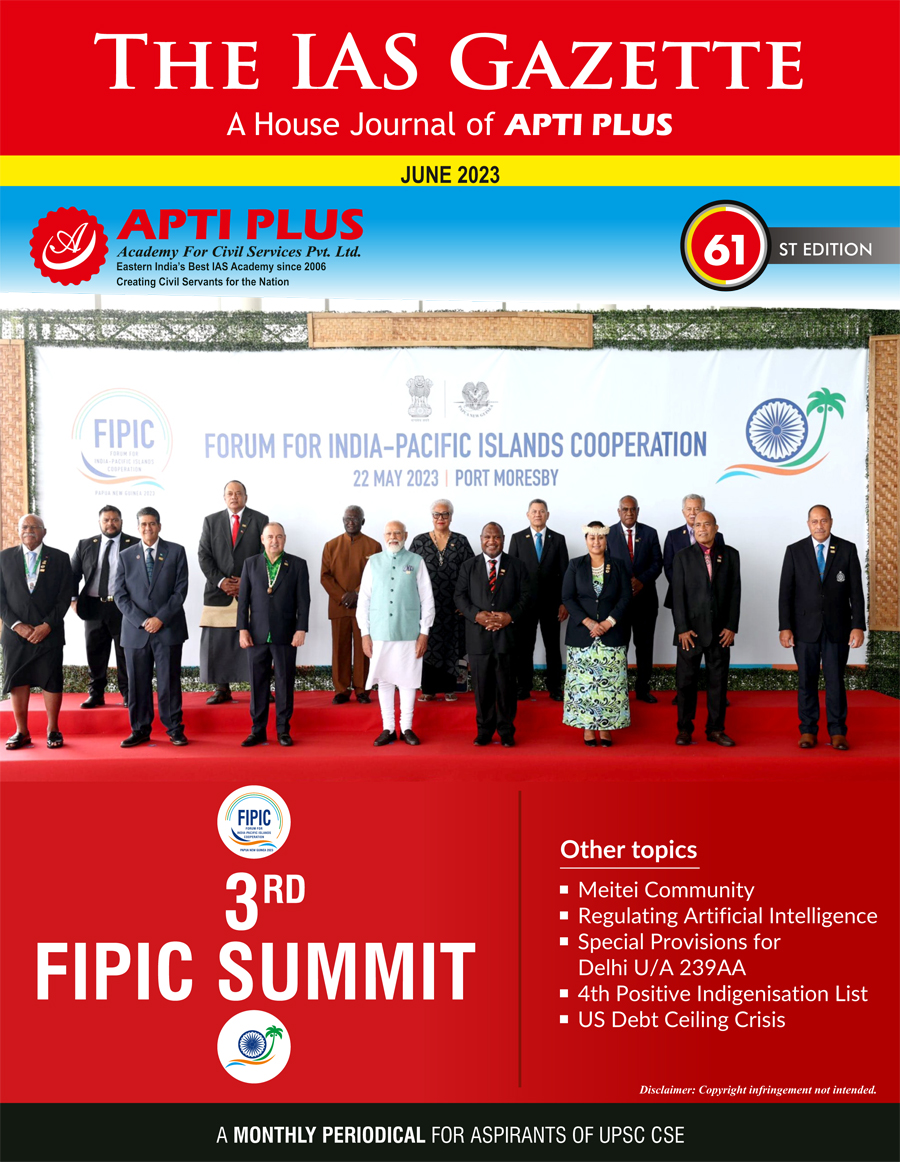
Copyright infringement not intended
Context: The Union Ministry of Ports, Shipping and Waterways (MoPSW) has secured the second position among 66 ministries in the highly influential Data Governance Quality Index (DGQI) assessment for 2022-2023 Q3.
Details
- The DGQI is a comprehensive framework that evaluates the data governance practices of various ministries and departments of the Government of India.
- It covers aspects such as data quality, data security, data sharing, data analytics, data innovation and data literacy.
- The DGQI assessment is conducted by the Ministry of Electronics and Information Technology (MeitY) in collaboration with the National Institution for Transforming India (NITI) Aayog.
- The DGQI assessment encompasses six key themes, including Data Generation, Data Quality, Use of Technology, Data Analysis, Use and Dissemination, Data Security and HR Capacity, and Case Studies.
Objectives
- To assess the data preparedness of various ministries and departments on a standardized framework.
- To drive healthy competition among them and promote cooperative peer learning from best practices.
3 key pillars
- The DGQI assessment covers three key pillars of data preparedness:
- Data Strategy
- Data systems
- Data-driven outcomes.
- The data strategy pillar evaluates the existence and implementation of systemic guidelines for data governance.
- The data systems pillar assesses the processes of data generation, management and use.
- The data-driven outcomes pillar measures the extent to which data is utilized and widely shared by institutions to drive decision-making.

Initiatives by the MoPSW to improve data governance capabilities
Data Governance Cell (DGC)
- Established a dedicated Data Governance Cell (DGC) to oversee and coordinate all data-related activities and projects within the ministry and its subordinate offices.
Data Governance Policy (DGP)
- Developing and implementing a Data Governance Policy (DGP) to define the roles and responsibilities of various stakeholders, set standards and guidelines for data collection, processing, storage, dissemination and usage, and ensure compliance with legal and ethical norms.
Data Inventory (DI)
- Creating and maintaining a Data Inventory (DI) to identify and document all the data assets owned or managed by the ministry and its subordinate offices, along with their metadata, quality parameters, access rights and usage patterns.
Data Sharing Platform (DSP)
- Adopting and promoting a Data Sharing Platform (DSP) to facilitate the secure and seamless exchange of data among various internal and external entities, such as other ministries, departments, agencies, state governments, private sector partners and researchers.
Data Analytics Platform (DAP)
- Enhancing and expanding the Data Analytics Platform (DAP) to enable advanced analysis and visualization of data for generating insights and evidence-based decision-making.
Data Innovation Challenge (DIC)
- Launching and scaling up the Data Innovation Challenge (DIC) to encourage and support innovative ideas and solutions that leverage data for addressing various challenges and opportunities in the ports, shipping, and waterways sector.
Data Literacy Program (DLP)
- Strengthening and upgrading the Data Literacy Program (DLP) to impart data skills and competencies to all the employees and stakeholders of the ministry and its subordinate offices.
Conclusion
- The MoPSW is committed to further improving its data governance performance and achieving excellence in data-driven governance. The ministry acknowledges the guidance and support of MeitY and NITI Aayog in this endeavour. The ministry also appreciates the efforts and contributions of all its employees, subordinate offices, partners and stakeholders in making this achievement possible.
Must Read Articles:
Good Governance: https://www.iasgyan.in/rstv/perspectivegood-governance
Draft National Data Governance Framework Policy: https://www.iasgyan.in/daily-current-affairs/draft-national-data-governance-framework-policy
|
PRACTICE QUESTION
Q. How can data play a crucial role in promoting good governance in the public and private sectors? Data can help to enhance transparency, accountability, and citizen participation. However, data also poses significant challenges for governance, such as ensuring data quality, security, privacy and ethics. What are some of the best practices and recommendations for overcoming these challenges and harnessing the potential of data for good governance?
|

https://pib.gov.in/PressReleasePage.aspx?PRID=1923838




